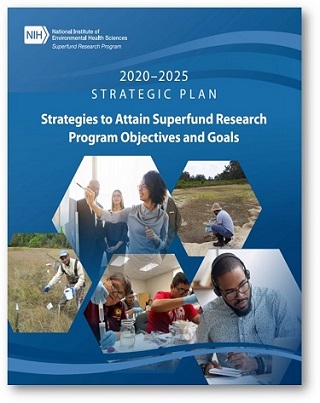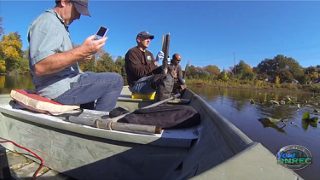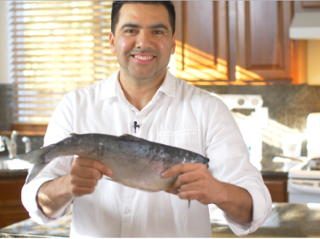Science Leadership
Superfund Research Program (SRP) staff and grant recipients are committed to advancing research by presenting innovative findings, tools, and technologies to stakeholders in academia, government, and communities.

In 2020, SRP engaged stakeholders from academia, environmental health agencies, and not-for-profit organizations to review and refine the SRP strategic plan. The 2020 Strategic Plan builds on the 2010 and 2015 SRP Strategic Plans that summarized program objectives and goals , and outlined strategies to achieve them. In the 2020 update, SRP reaffirms its commitment to the objectives presented in these previous iterations, while focusing SRP research and training through a systems approach lens to accommodate emerging complexity of environmental health issues.
Congratulations to 11 exceptional SRP trainees who received a 2020 K.C. Donnelly Externship Award Supplement to enrich their research in environmental health science! This year's awardees are: Ahlam Abuawad, Juliana Agudelo, Jogen Atone, Jessica Ewald, Jamie Kelly, Katlyn McGraw, Yvonne Rericha, Anna Robuck, Maya Spaur, Paige Varner, and Hao Wang. Learn more about the trainees and their awards on the 2020 Winners webpage .
A recent publication by SRP staff and colleagues illustrates how focusing SRP research through a systems approach lens can help integrate diverse fields of research to prevent or understand environmentally-influenced human disease by addressing specific questions that are part of a larger perspective. This approach can continue to advance SRP science while building the foundation for researchers to address difficult emerging environmental health problems.

An innovative technology , developed with funding from SRP, successfully delivers amendments that immobilize and degrade polychlorinated biphenyls in aquatic environments. Developed by Upal Ghosh, Ph.D., and colleagues, the technology has proven effective in the field and resulted in millions of dollars in cost savings at cleanup-sites.
Celia Chen, Ph.D., from the Dartmouth College SRP Center contributed to the first-ever survey of mercury pollution in the U.S. National Park System. The study , built on nearly a decade of research across the country, found that immature dragonfly larvae can be used to estimate the amount of mercury that is present in local fish, amphibians, and birds.
In a virtual symposium , SRP grant recipients and colleagues shared research findings and discussed leveraging data to learn how metal exposures can lead to epigenetic changes. Co-hosted by the University of California, Berkeley and the Columbia University SRP Centers, a recording is available on YouTube .

A new nine-part, multilingual video series delivers critical fish consumption information to Seattle communities who use the contaminated Duwamish River for fishing, recreation, and cultural reasons. Developed by the University of Washington SRP Center, the video series covers a range of topics, including an introduction to salmon fishing, how much salmon is safe to eat, and how to prepare and cook various salmon dishes. To meet the language needs of the area's culturally diverse fishing community, they are available in Spanish, Vietnamese, and Khmer, the official language of Cambodia.
The Federal Information Exchange on per- and polyfluoroalkyl substances (PFAS) is hosting a monthly webinars series to share emerging science on PFAS. The series provides an opportunity for scientific exchange on emerging PFAS research among federal scientists, federal risk communication specialists, and federally funded academic experts. In the first session, held July 31, Angela Slitt, Ph.D., of the University of Rhode Island SRP Center SRP Center discussed how exposure to PFAS can lead to liver disease.
SRP small business grant recipient Microbial Insights is taking the next steps to commercialize its tools that monitor the breakdown of environmental contaminants. The company was one of 23 small businesses selected to participate in the 2020 Innovation Corps (I-Corps) at NIH, an eight-week intensive program that teaches researchers how to accelerate commercialization of their products.
to Top



